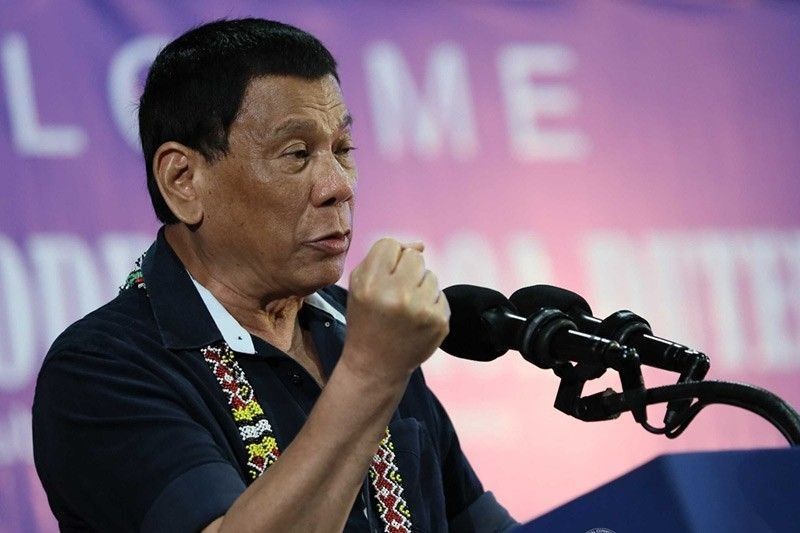Palace defends Duterte's veto of anti-corporal punishment bill

MANILA, Philippines — Malacañang Sunday defended President Rodrigo Duterte's decision to veto a bill that would have barred parents from using corporal punishment to discipline their children.
The bill, which advocated "positive and non-violent discipline" and prohibited both physical and non-physical violence as a form of punishment, has been rejected by Duterte, who called it "overly sweeping."
In his veto message, the president said countless children have been raised up to become law-abiding citizens because of self-restrained corporal punishment. He also argued that the bill would allow the government to breach the privacy of Filipino families.
READ: Duterte vetoes 'anti-palo' bill on children
But some groups are still pushing for the passage of the law, saying it would protect children from violence.
The United Nations Children's Fund said the law would help families nurture their children and would not take away from parents the responsibility of raising their child.
The Child Rights Network, meanwhile, claimed that violent discipline "causes juvenile delinquency, aggression, inter-generational transfer of abuse, and even drug or alcohol abuse."
Panelo: Duterte against 'excessive' punishment
But presidential spokesman Salvador Panelo justified the veto, saying the president was not advocating excessive punishment.
"The problem with those who are opposed (to the veto) is they did not listen to the explanation of President Duterte," Panelo said in a radio interview.
"He said you should not deprive parents of the authority to discipline their children. He does not want punishment. He does not want excessive physical abuse. He said there should be punishment but it should be done in a restrained manner," he added.
Panelo said who belong to the president's generation respect rules because of the way their parents disciplined them. He said mothers would spank children on their buttocks or ask them to kneel on salt, punishments that he said were not excessive.
"They (parents) just had to look at us and we would follow them. That means, it (disciplining) was effective so we became good citizens, we respect the laws and rules on ethics," the presidential spokesman said.
"If you are punished, you would regret your wrongdoing and would not repeat it. But if you hurt a child excessively, that is a different story. You will be liable under the law," he added.
Panelo said parents, as a general rule, would not do anything that would harm their children.
- Latest
- Trending




























